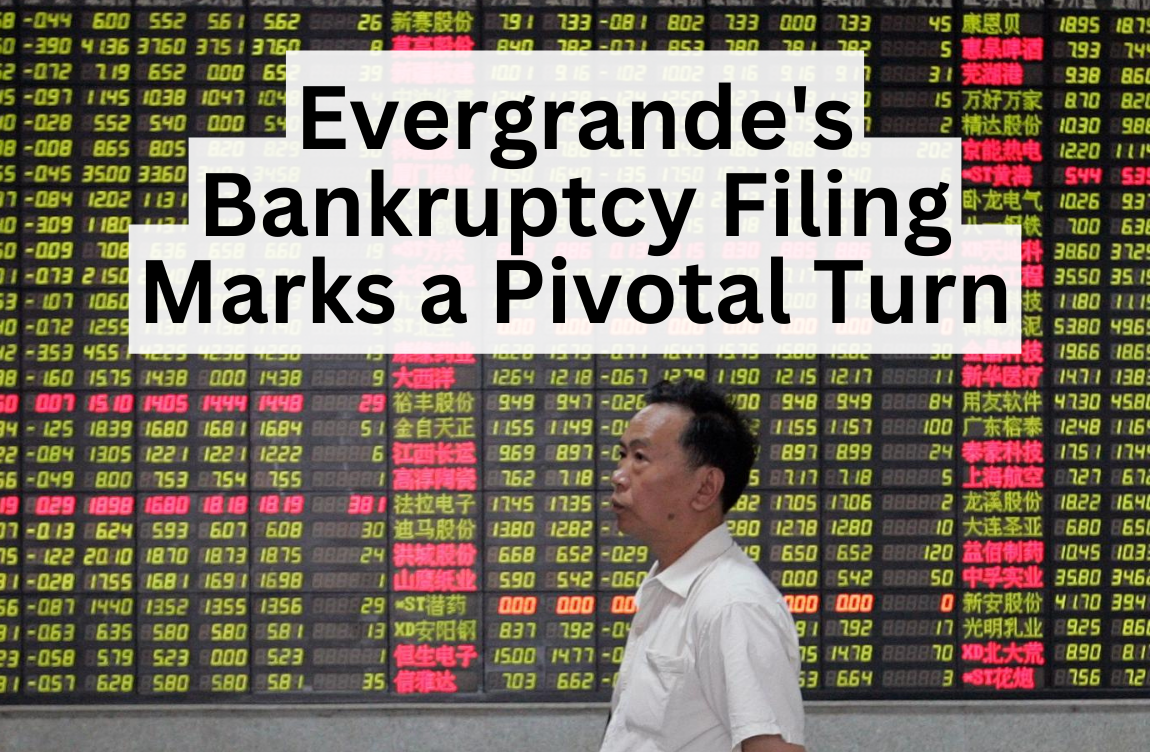
Evergrande’s Bankruptcy Filing Marks a Pivotal Turn
In a seismic shift, China’s once-mighty Evergrande Group, a former titan among the nation’s property developers, has formally lodged a bankruptcy claim in a New York court, ushering in a new phase of its tumultuous journey.
The corporation, burdened by an immense load of debt, found itself in default back in 2021, igniting a cascading property predicament that continues to reverberate throughout China’s economic landscape.
Seeking refuge under Chapter 15 bankruptcy safeguards, Evergrande beckons the intervention of a US bankruptcy court, a measure designed to facilitate collaboration between American courts, debtors, and foreign legal systems entangled in cross-border insolvency deliberations.
In response to BMG’s inquiry, Evergrande has abstained from immediate commentary.
The Resounding Ripples of Evergrande’s Default
Once the cornerstone of China’s economic edifice, the real estate sector had, at its zenith, contributed nearly 30% of the nation’s GDP. However, Evergrande’s default in 2021 unleashed a shockwave that not only shook China’s property realm but also inflicted wounds upon homeowners and the broader fiscal framework of the country.
This default followed a period during which Beijing sternly curbed excessive borrowing by developers in its endeavor to curb the vertiginous surge of housing prices.
In the wake of Evergrande’s collapse, several other major Chinese development firms, including Kasia, Fantasia, and Shimao Group, have joined the ranks of debt defaulters. The most recent addition to this list is Country Garden, another real estate behemoth, which has indicated the contemplation of “various debt management measures,” thereby spurring conjecture about an imminent debt overhaul amidst its cash-strapped struggles.
The industry’s afflictions are exacerbated by the broader economic deceleration across the nation.
A Road to Redemption?
Evergrande, a colossal entity with an expansive footprint encompassing over 1,300 real estate undertakings across 280-plus cities, as attested by its website, embraces diverse ventures beyond real estate, spanning from electric vehicles and healthcare to theme parks.
Following its official plunge into default territory in late 2021, Evergrande grappled with loan repayments. As of the previous year’s end, the company was shackled by a debt burden amounting to 2.437 trillion yuan ($340 billion), constituting roughly 2% of China’s entire gross domestic product.
Moreover, the firm’s financial statement for 2021 and 2022 divulged a staggering $81 billion depletion of shareholder funds.
In a bid to chart a recovery route, Evergrande unveiled a long-anticipated blueprint for debt restructuring earlier this year, marking China’s most extensive such effort on record. The developer proclaimed the clinching of “binding accords” with international bondholders concerning the plan’s pivotal terms.
As part of this strategy, Evergrande voiced its intention to steer back into normal operational waters within the ensuing three years. However, the ambitious revival necessitates an infusion of supplementary capital in the ballpark of $36.4 billion to $43.7 billion.
Adding to the conundrum, the company raised alarms about the plausible shutdown of its electric vehicle unit unless fresh funding materializes.
Recent developments have seen some rays of funding light penetrating the gloom. Just days ago, NWTN, an automobile company rooted in Dubai, publicized a strategic investment of $500 million into Evergrande’s electric vehicle division, securing a slice of ownership pegged at approximately 28%.
